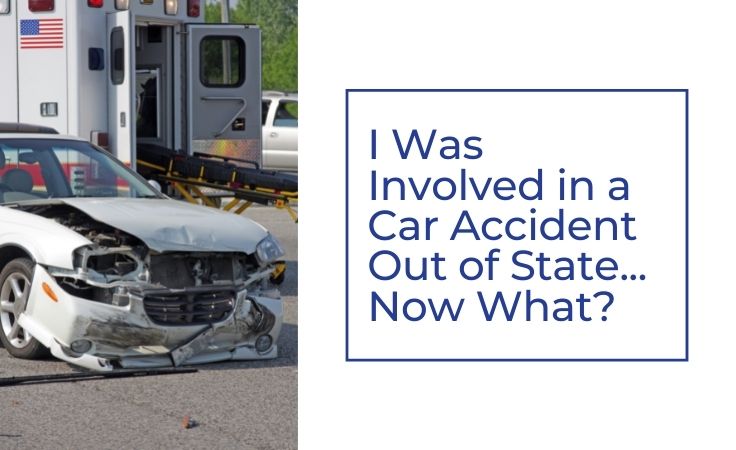Car accidents can be straightforward or complex cases to claim compensatory damages in, depending on the circumstances of the accident. Car insurance laws vary from state to state, with some states operating on a traditional fault-based system and others operating on a rarer no-fault basis. If you are in a car accident within your home state with your current insurance coverage, you will follow the system that your state adheres to. However, what happens when you are in a car accident in a different state?
Your Legal Options After an Out-of-State Car Accident
After a car accident, you may suffer from significant physical, financial, and emotional damages. You have the right to claim compensation to recover from these damages if you did not cause the accident yourself. Typically, you have three options to claim compensation following a car accident with the help of a Bakersfield motor vehicle accident lawyer.
- You can file a personal injury lawsuit in civil court.
- You can file a claim with the at-fault party’s insurance company, although some no-fault states will require you to prove certain circumstances before doing so.
- You can file a claim with your own insurance company, depending on the type of coverage you have.
Thankfully, insurance coverage extends across state lines. When you choose to file a car insurance claim, the process will be the same no matter where you purchased your insurance and where you suffered an accident. However, you will need to make sure that you collect all evidence related to the accident before you leave the area.
If you choose to file a personal injury lawsuit, which is common in more severe accidents where the policy limits of your insurance company are not enough to cover your damages, the rules become more complicated.
Filing a Personal Injury Lawsuit for an Out of State Car Accident
If you are filing a personal injury lawsuit for your out of state accident, you have two options in regards to where you can file.
- You can file in the state you suffered an accident in.
- You can file in the state that the at-fault party resides in.
For example, if you live in California and get into a car accident with an Arizona driver while traveling through Nevada, you can either file your claim in Nevada or Arizona. Unfortunately, you will not be able to file in your home state unless the at-fault driver also lives there or the at-fault driver consents for you to file your claim there.
When it comes to which state’s laws will apply to your case, the court will likely apply the laws of the state where your accident occurred — which can either be a benefit or a disadvantage, depending on where you live and where you were traveling. Speaking to an attorney can help you determine how the court may treat your case.
What to Do After an Out of State Car Accident
If you suffer a car accident while you are traveling or visiting family, it is very likely that you will not remain in that area for a long period of time. In this case, it is important to take appropriate steps to gather evidence and seek legal assistance.
- Call 911 to the scene of the accident, speak to the responding officer, and collect his or her contact information so you can locate the report.
- Take pictures of all vehicles involved, the scene of the accident, and any injuries you may have.
- Collect the contact information for the at-fault driver and any witnesses at the scene.
- Visit a hospital as soon as possible to receive treatment for your injuries, and collect all medical documents and bills.
- Contact an attorney who has a license to practice in the state where you are filing your lawsuit.
Whether you suffered injuries in a car accident in your home state or in another part of the country, you still have the right to claim compensation for your injuries through a personal injury lawsuit or insurance claim. Hiring an experienced Bakersfield injury attorney with experience representing complex car accident cases is your first step towards claiming your damages. Contact your car accident lawyer today to discuss your legal options and begin filing your claim.
